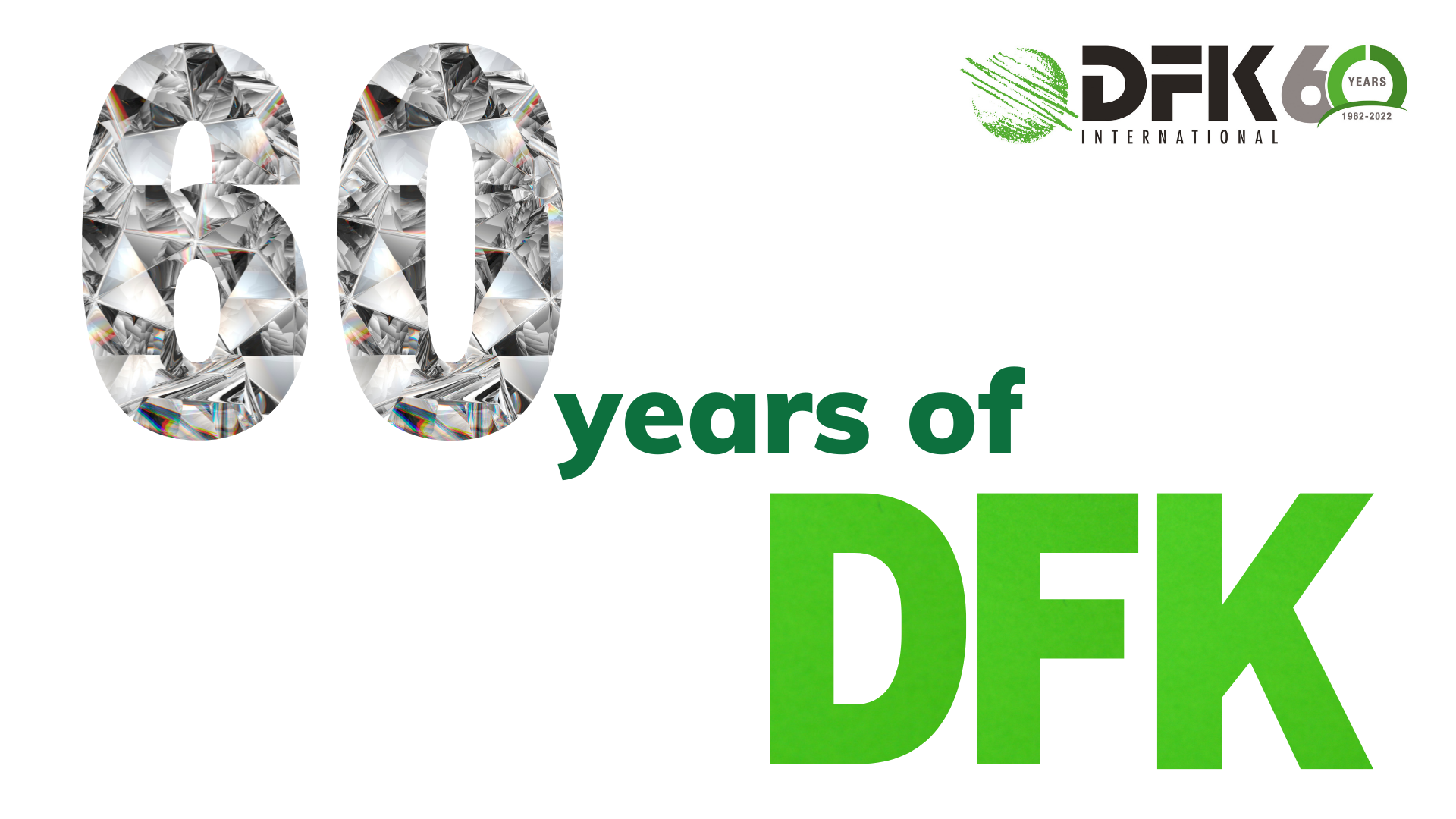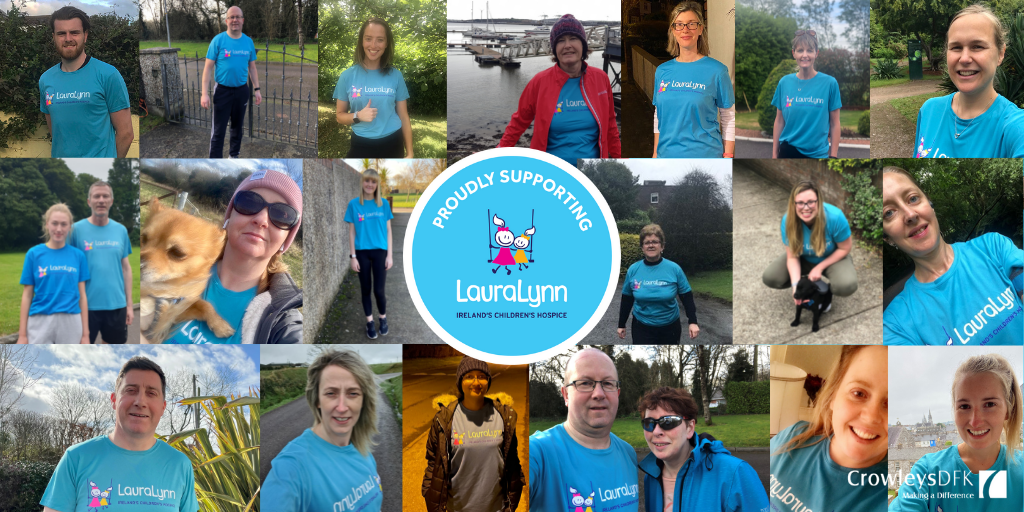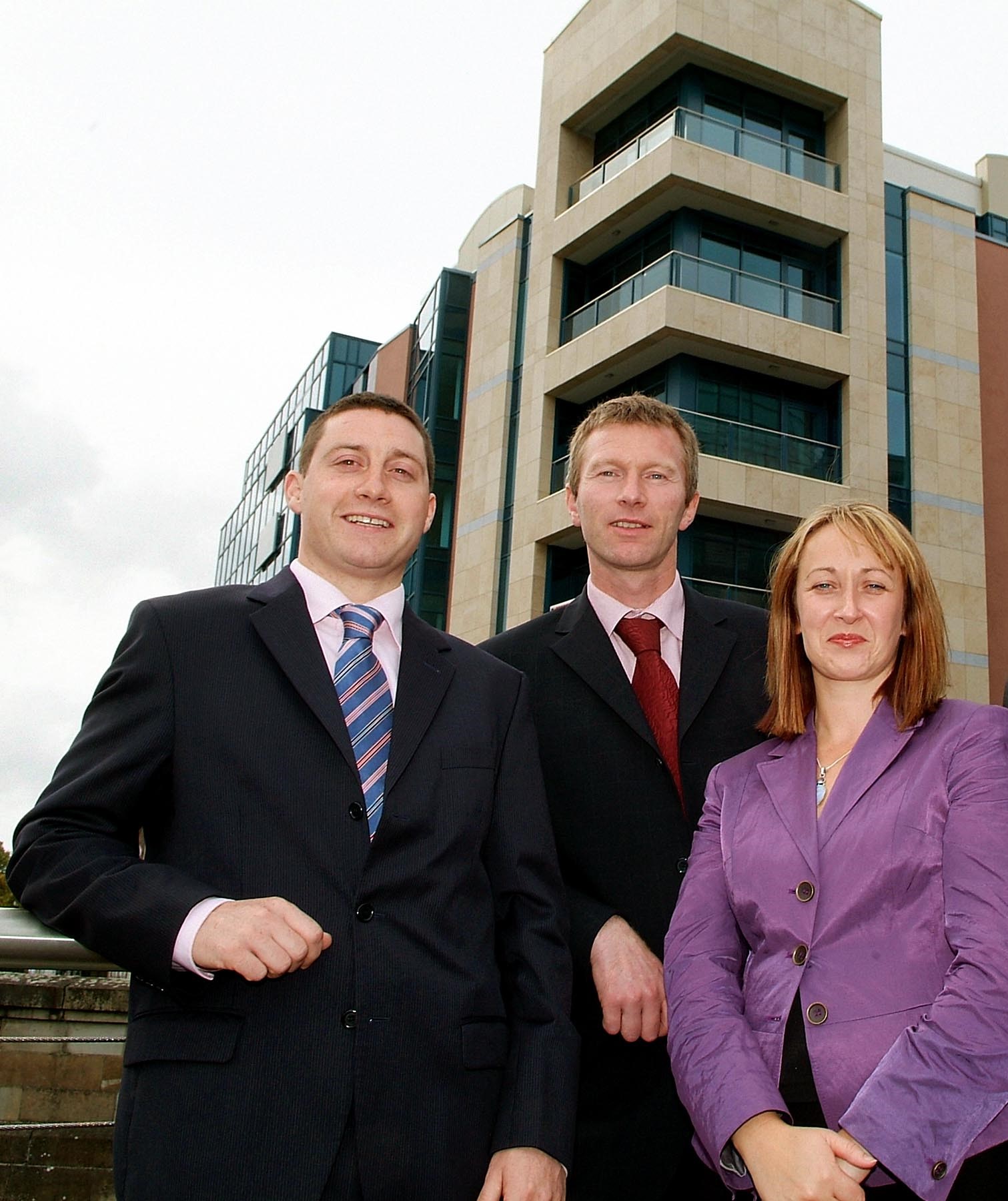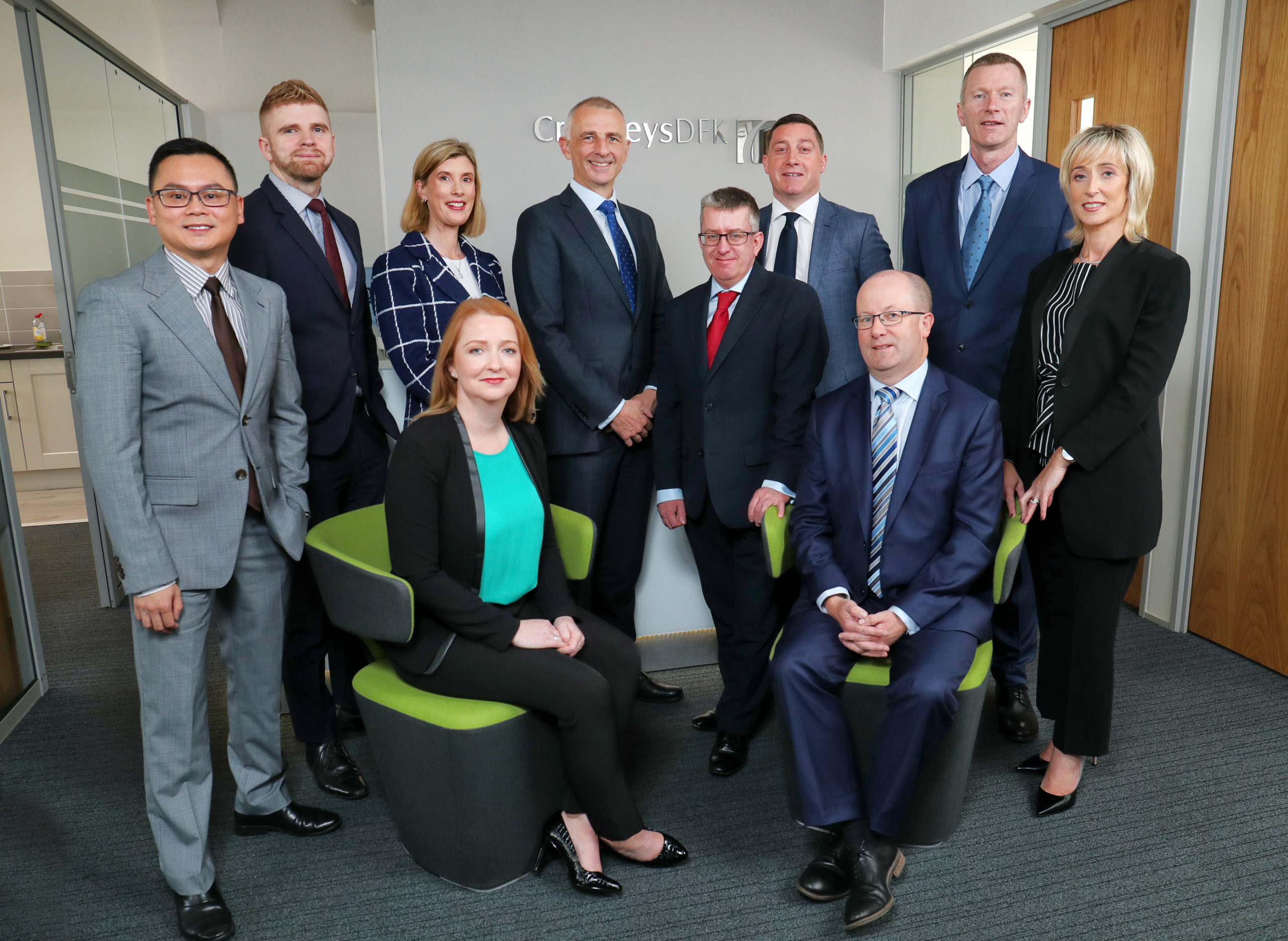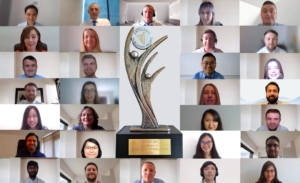2006 was an important year for Crowleys DFK. This year marks the 15th anniversary of a trio of events that would have a major impact on our firm’s continued growth as one of Ireland’s top firms of chartered accountants and business advisors.

Eddie Murphy, James O’Connor & Colette Nagle announcing the merger and Eddie’s promotion to Partner (Oct 2006)

Future Partner of Public Sector & Government Services, David Coombes, joins Crowleys DFK as a Summer Intern (June 2006)
Introduction of a Future Chief Operating Officer (COO)
In one of the more significant developments in our firm’s history, on 13th October 2006, Crowleys DFK announced a merger with Kinsale, Co. Cork firm Fitzsimons Flynn & Co. The merger saw Colette Nagle join Crowleys DFK as Partner. Innovation is a core value of Crowleys DFK and is key to all services provided by our firm. From her onboarding as Partner in our Financial Advisory Department and her current role as Chief Operating Officer, Colette has led by example.
Graduating from CIT with a BBS in Accounting, Colette joined Fitzsimons Flynn & Co. as an Accounting Trainee where she became qualified as a Chartered Accountant (FCA) in 2001 and as an AITI Chartered Tax Adviser in 2003. In 2004, Colette was made Partner at Fitzsimons Flynn & Co, becoming the youngest female Partner in Ireland at the time. The merger saw Colette join the then 5 Partner and 40 staff Crowleys DFK, bringing with her a team of 6 staff.
Colette’s experience and expertise led to her oversight of the Merger and Integration Teams when Crowleys DFK merged with a further 4 firms between 2008 and 2020. Colette would also manage the office refurbishment projects completed in 2017, the key element of the design being sustainable, environmentally friendly office spaces.
Colette has been recognised for her contributions, having been shortlisted as a finalist in the Services to Accounting & Finance category at the second Irish Women’s Awards in 2020. The same year, she was announced as the Chief Operating Officer of the now 10 Partner, 100 staff Crowleys DFK.
Since then, Colette has been responsible for setting and strengthening robust operational controls and driving innovation and digital transformation that support the goals and overall innovative vision of the firm, while also delivering cloud accounting advisory, implementation, and application across the full spectrum of sectors, helping clients to transform their businesses in the rapidly growing digital era. Colette commented:
Over the past 15 years I have transitioned from accountant to a trusted business advisor. I believe my personal and practical holistic approach helps me to understand my client’s needs and provide them with the strategic advice they require to navigate a pathway whereby they can achieve their goals. Advances in technology and AI will never be able to replace human intelligence and the power of strong relationships.
Leading the Growth of our Foreign Direct Investment (FDI) Department
On the same day in 2006, Crowleys DFK announced that Eddie Murphy had been appointed Tax Partner, having been instrumental in the practice area’s growth and the diversity of compliance and tax planning services offered to its wide range of clients, from owner-managed, indigenous companies to international companies locating in Ireland to public sector organisations.
Eddie joined Crowleys DFK as a trainee accountant in 1998. He qualified as a Chartered Accountant in 2002 and opting to continue his career and studies in practice, he qualified as a Registered Tax Consultant of the Irish Taxation Institute in 2005.
Today, Eddie heads our Tax Department and specialises in international corporate structuring, VAT, property transactions, and employment tax issues. As Lead Partner of our Foreign Direct Investment (FDI) Services, he also leads a team of specialists who provide companies that wish to relocate to Ireland a “one-stop-shop” service offering and advice at each stage of their lifecycle.
Eddie believes in building strong relationships with clients, and that having a deep understanding of their objectives enables him to provide commercially effective advice. He states:
“Where I believe we excel is spending the time to get to know the investing company and its people and instil in them the peace of mind that their compliance and advisory needs are really being looked after by people who care”.
Future Public Sector Partner Starts his Career Journey
This year also marks 15 years since Partner in the Public Sector & Government Services Department David Coombes joined Crowleys DFK.
David joined Crowleys DFK as a summer intern before his final year of study at the National College of Ireland, where he would graduate with a First Class Honours Batchelor of Arts degree. He later qualified as a Chartered Accountant and held the position of Director within the Public Sector team at Crowleys DFK. Here, he would gain invaluable experience and expertise in leading public sector financial and business advisory assignments in areas such as financial reporting framework implementation, management information system design, strategic finance support, risk management and governance compliance.
In 2019, Crowleys DFK announced that David was appointed as a Partner in the department. Today, David remains in this role, working as an integral member of the leadership team. His work alongside his colleagues has helped to lead the Public Sector Services team to being named as the outright winner in the category of Excellence in Public Sector Services by The Public Sector Magazine in its Excellence in Business Awards for 2020 and 2021.
Commenting on his appointment in 2019, David said:
“I’m delighted to have been given this opportunity and feel very fortunate to be part of a firm which offers the best career development opportunities possible for its staff. I see an exciting future ahead for both the firm and the Public Sector Services Department.”

Crowleys DFK Partners (2021)
Eddie also attributes his success to the training and support he received at Crowleys DFK throughout his career. With an open door policy, employee progression and growth is at the forefront of our firm’s goals. The firm continues to offer excellent opportunities for individuals interested in pursuing and progressing a career in business. For further information, please visit our Careers page.

